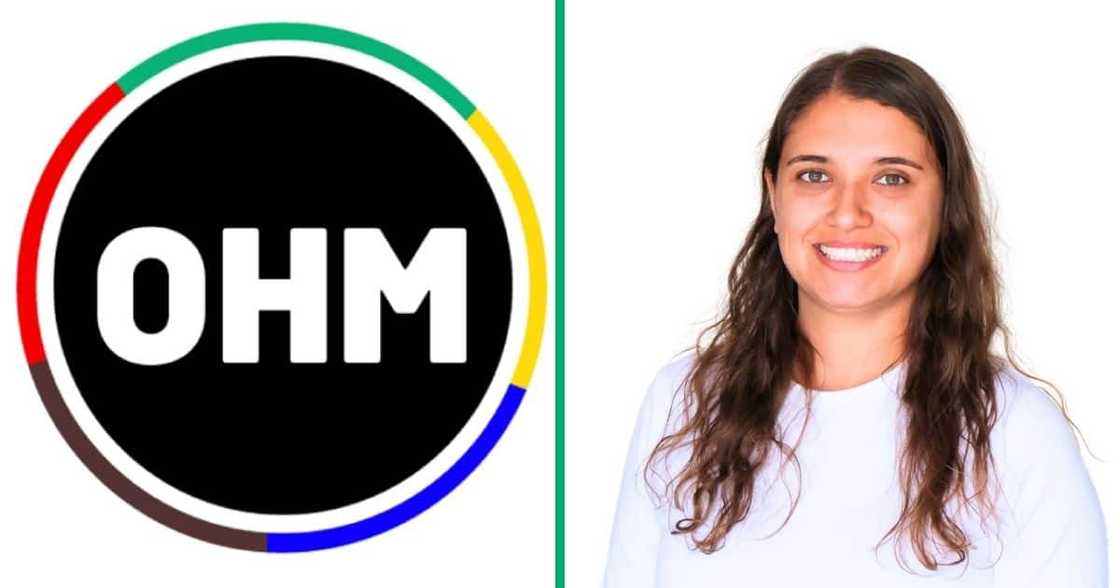Out with the Old: OHM Says No More Political Parties
- The Organic Humanity Movement believes a complete overhaul of the political system will address most of the country's challenges
- Lauren Bernado told Briefly News that voting for individuals will increase accountability as leaders will answer to the people and not political parties
- Bernado's organisation will be contesting the upcoming 29 May 2024 General Election nationally
PAY ATTENTION: Leave your feedback about Briefly News. Fill in this short form. Help us serve you better!
Zingisa Chirwa is an experienced Briefly News journalist based in Johannesburg, South Africa, who has covered politics and current affairs on the radio for over 15 years.

Source: UGC
The Organic Humanity Movement dreams of a South African utopia where political parties are a thing of the past and individuals directly voted in by the country's citizens are responsible for running the state.
The party, which will contest the 29 May 2024 General Election nationally, believes that the political system is the most crucial obstacle to overcome when addressing the many challenges that plague the nation and its people.
Briefly News' Question and Answer with OHM
Founder and leader Lauren Bernado told Briefly News that OHM would focus on implementing a system change through constitutional transformation:
PAY ATTENTION: stay informed and follow us on Google News!
“This means we want to change the political system, how we vote, and the structure and purpose of government, and we want to do so by setting out our proposed political and government framework for what will become the new constitution for South Africa.”
Bernado took Briefly News through the party’s plan and vision for the future.
1. What would be the first step in changing the current political system to the one OHM envisioned for the country?
We want to make the changes and reach our goals using the current flawed political system. Once we win at least one seat in government, we will start drafting the new constitution and accompanying legislation.
We will also start approaching other members of parliament (individuals and not their parties) and lobby for their support. Alongside this work, we will increase public awareness and support for the constitutional changes we have set out.
Combined, these efforts will culminate in parliament voting in favour of the changes proposed by OHM. All parties will then fall away, and everyone in parliament will become an interim representative until the next elections, South Africa’s first truly democratic elections. In these elections, people will vote directly for all their candidates, including the President of SA.
2. How long would it take to implement and reach the desired goal?
This can happen in as little as three weeks up until 2029. The time depends on the citizens’ will and actions. We have no time to waste, as the county is in a serious state, and the suffering will only increase without system change.
3. How would an Electoral system focusing solely on independent candidates be managed, and how would candidates be vetted?
The Independent Electoral Commission will manage this process. A party application process, like the one we have now, will filter out candidates who do not have public support.
The potential candidates would apply to the IEC with a predetermined number of signatures plus a monetary deposit. We believe this criteria will filter out people who should not be in politics.
Because no parties exist, there is no government funding going towards politics. Therefore, potential candidates have to ask people directly for their support in the form of signatures and money. This will be supported by legislation similar to the Political Party Funding Act that will ensure transparency for donations above a certain threshold so that the public can see if anyone is trying to buy influence.
4. How would individuals with different campaigns and visions merge to form a government with a shared goal? (Currently, many municipalities with coalition governments struggle to find common ground and work for the betterment of their communities.)
There will no longer be a need for coalition governments as we transition from a majority-rule mindset to a representation mindset. Representatives cannot occupy more than one seat and must acknowledge that each is there to represent a portion of the population. It won’t be about one party or a few parties winning; instead, it will be about each individual representative working together to reach a solution.
To fully understand this, it is important to understand that we are structuring government so that local municipalities have more autonomy. We are also implementing five levels of government within our constitutional framework: self-governance, family governance, and community governance. The last two levels of government will be local and provincial, which are the official forms of government.
Because of this new mindset and more autonomous local municipalities, differences between politicians’ beliefs or opinions won’t have as much effect as in the current system. Combine this with the mechanism to vote out ineffective politicians, and we will see a much healthier political future.
5. What would be the benefits of this restricted system for both citizens and candidates?
There will be far more accountability. Instead of representatives answering to their party superiors, they will answer to the people. A mechanism will also allow citizens in a constituency to vote out their public representative under certain circumstances. These changes bring about a truer form of democracy because they put power in the hands of the people.
6. What would be the purpose of dismantling provincial governments, and how would the national government readjust from managing nine provinces to 52 municipalities or regions?
Firstly, it allows the government to become smaller and cost the taxpayer less. Then, local governments will have much more autonomy and flexibility.
For instance, in the case of education, instead of having a national curriculum with provincial offices that oversee schools, each municipality will have more flexibility in deciding what curriculum to use, how to build and structure schools, and what teachers to hire.
7. OHM’s end goal is to abolish political parties. If this is achieved, what’s next for South Africa?
A true democracy that allows people to vote directly for their candidates. Imagine the relief we will feel from the lack of political drama. We will have matured as a citizenry to a new type of government system that protects South Africa’s borders and interests from outside threats so that the citizens can live in freedom.
Once the first new elections take place, the new President and MPs will get to work securing the border, strengthening the military, and building more nuclear power stations so we can grow the economy and industry, which will increase employment opportunities.
Local governments can get to work, providing for the unique and direct needs of each constituency. The government will be limited in power and, therefore, less of a burden on citizens.
The quality of the representatives and what they stand for directly depend on how the population votes. Active citizenry is important for this new system to work.
OHM on the importance of voting
Bernado further explained that whether the country remained in the multi-party system or moved to form a new structure, the participation of the country’s citizens would be the cornerstone of any successful democracy.
This is why it was important for every registered citizen to head to the polls on 29 May 2024; in less than 1 week, South Africans could wake up to a completely different country.
Lauren Bernado founded OHM in 2017 after three years of volunteering and working in politics and the local government. She holds a short course on Governance and Public Administration from UCT.
PAY ATTENTION: Follow Briefly News on Twitter and never miss the hottest topics! Find us at @brieflyza!
Source: Briefly News

Sibusisiwe Lwandle (Head of Entertainment) Sibusisiwe Lwandle is the Head of Entertainment at Briefly News (joined in 2019). She holds 3 degrees from the University of Cape Town and the University of KZN and short course certificates from Yale and UCL. She has over 10 years of experience in journalism, having worked in print, online, and broadcast media. She has worked at Independent Media and 1KZNTV and has contributed columns to the Washington Post. Passed a set of trainings by Google News Initiative. Email: sibusisiwe.lwandle@briefly.co.za

Zingisa Chirwa (Editor) Zingisa Chirwa is an experienced broadcast journalist who has worked predominantly in radio newsrooms for over 15 years. Chirwa has occupied numerous positions, including news journalist, editor and current affairs host, focusing mainly on Mpumalanga politics and business. You can reach Zingisa at zingisa.chirwa@briefly.co.za.
